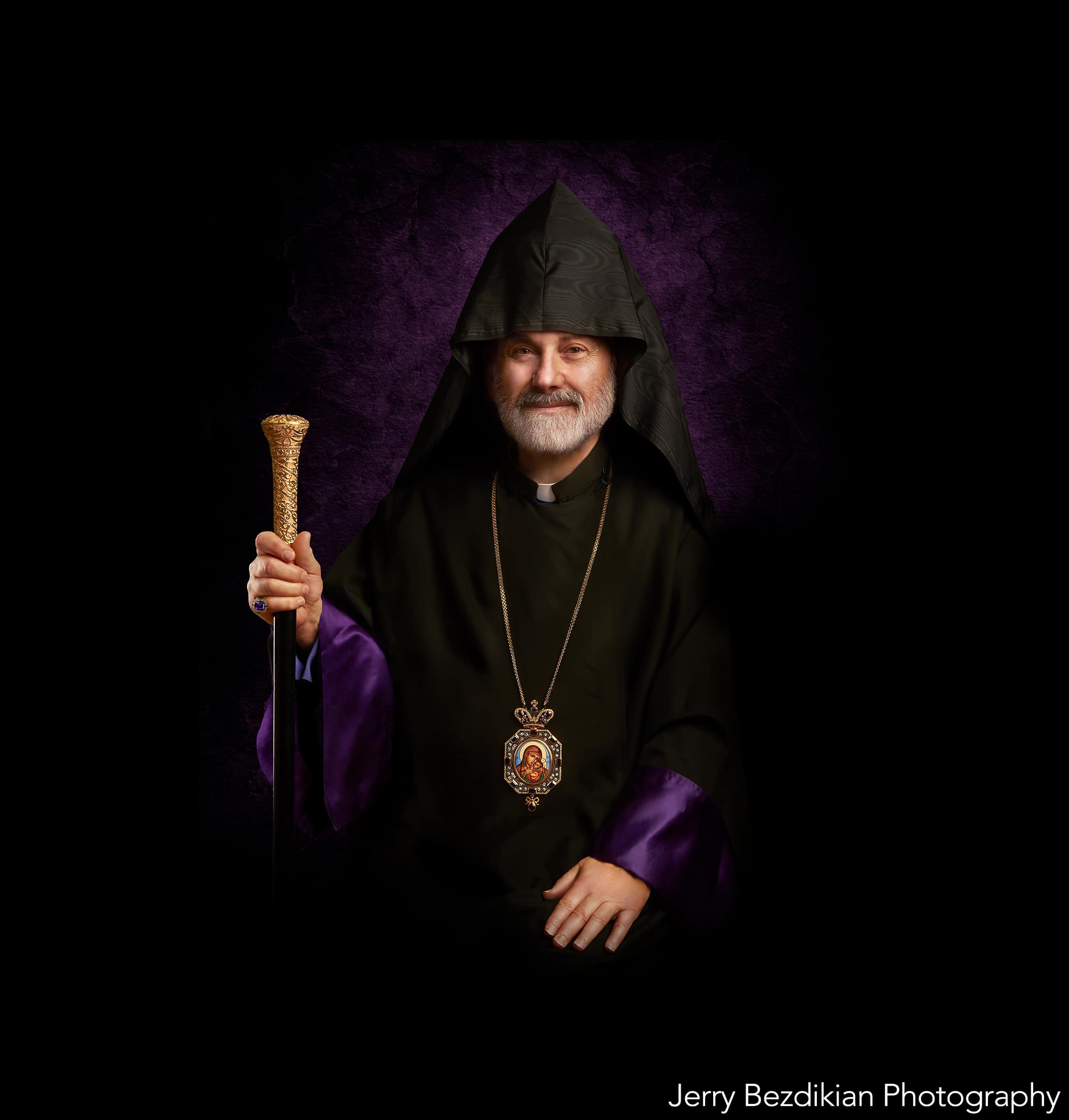The Prelate’s Sermon, Sunday, February 20
Today, on the sixth Sunday following the Nativity of our Lord Jesus Christ, the Gospel reading is from Saint John 7:37-52. We read the following. “On the last day of the festival, the great day, while Jesus was standing there, He cried out, ‘Let anyone who is thirsty come to me, and let the one who believes in me drink. As the scripture has said, “Out of the believer’s heart shall flows rivers of living water”.’ Now He said this about the Spirit.”
Indeed, on Pentecost, when the Holy Spirit descended upon the Apostles, the living word of God like living water poured from their hearts and irrigated the souls of all those who were thirsty to the love and knowledge of the Almighty Lord, fully revealed in His Only Begotten Son, Jesus Christ, and working in the Holy Spirit. Since then, until the Parousia, the Holy Spirit with His grace, miraculously activates the hearts of all believers to flow rivers of goodness, as the unconditional gift of our loving, Heavenly Father.
Upon this reading, I would like to share a few thoughts derived from the life of Saint Sahag, from the dynasty of the Parthians (hence, “Bartev”), whose feast the Armenian Church celebrated yesterday, and whose life became a continuous blessing river by enriching the faith of Armenian believers.
- Saint Sahag Bartev, the great-grandson of Saint Gregory the Illuminator, lived at a critical juncture in the history of the Armenian nation which was divided between two superpowers: the Persian and Byzantine Empires. During this time, Sahag manifested the characteristics of true leadership.
- Filled with Divine grace of love and wisdom, he encouraged a junior clergyman named Mesrob Mashdots in his search to discover Armenian alphabet. He knew that the key to energizing Christianity is the acquaintance of the Word of God in the very authentic language of the native people. It is true that Saint Gregory the Illuminator had converted the Armenians to Christianity, yet the Scriptures and the liturgical language were either in Syriac or Greek. Several attempts had been made to modify other alphabets and create the Armenian alphabet, yet these were futile for Armenian language had its own peculiarities which could not be easily rendered using other alphabets.
- As a realist, Saint Sahag was aware that the invention of the alphabet was the fruit of prayer, dedication, and creativity, but it also depended upon royal support to finance the expenses incurred. Saint Sahag convinced the Armenian King Vramshabouh to lend his royal treasury to the project. The result was superb: with God’s blessing, the mission to secure an indigenous alphabet was accomplished with Excellency.
- Saint Sahag, full of grace as a father rejoicing in his son’s success, wholeheartedly organized a nationwide welcoming ceremony when Saint Mesrob Mashdots returned from his exhausting journeys. The royal family, the nobles and the people welcomed Mesrob as a national hero. The author of the hymn describing the welcoming scene skillfully presents this historically moving moment, by comparing the invention of the Armenian Alphabet and bringing it home with the receiving of the Ten Commandments by Moses and introducing them to his people.
- Saint Sahag, as a man of vision, was convinced that teamwork was the best vehicle to establish a new brand of authentic Armenian literature and to educate an entire nation. He sent intelligent students abroad to the cultural centers of Alexandria, Athens, and Constantinople.
- Upon the return of his pupils, with the collaboration of Saint Mesrob Mashdots, very wisely Sahag divided the task into two groups: Translating the Scriptures and Christian literature into Armenian as well as opening of new schools. This process of course did not halt during their lifetime but continued over the following decades and centuries.
- Saint Sahag, a biblical scholar himself, was directly involved in the translation of the Holy Bible. Following the first translation of the Scriptures he led a new translation using a reliable text brought from Constantinople. Thus, he laid the foundation of a concrete identity of Christian faith.
The Armenian Church honors St. Sahag by celebrating his feast on two occasions: separately on the Saturday before Great Lent, and then after the Pentecost together with Saint Mesrob Mashdots. The title of “illuminators of the Armenian mind,” is bestowed upon both Sahag and Mesrob, following the designations of St. Gregory as “illuminator of the souls” and St. Nerses the Great as “illuminator of the hearts.”
On this venerable feast of a humble servant of the Master Servant, Jesus Christ, let us all ask God’s guidance to overcome critical moments in our lives; to collaborate with others and appreciate the talents of our fellow brothers and sisters, friends, colleagues and subordinates, and to rejoice in their success; to encourage teamwork and mostly to become involved in community-building services, praising the All-Holy Trinity. Amen.

